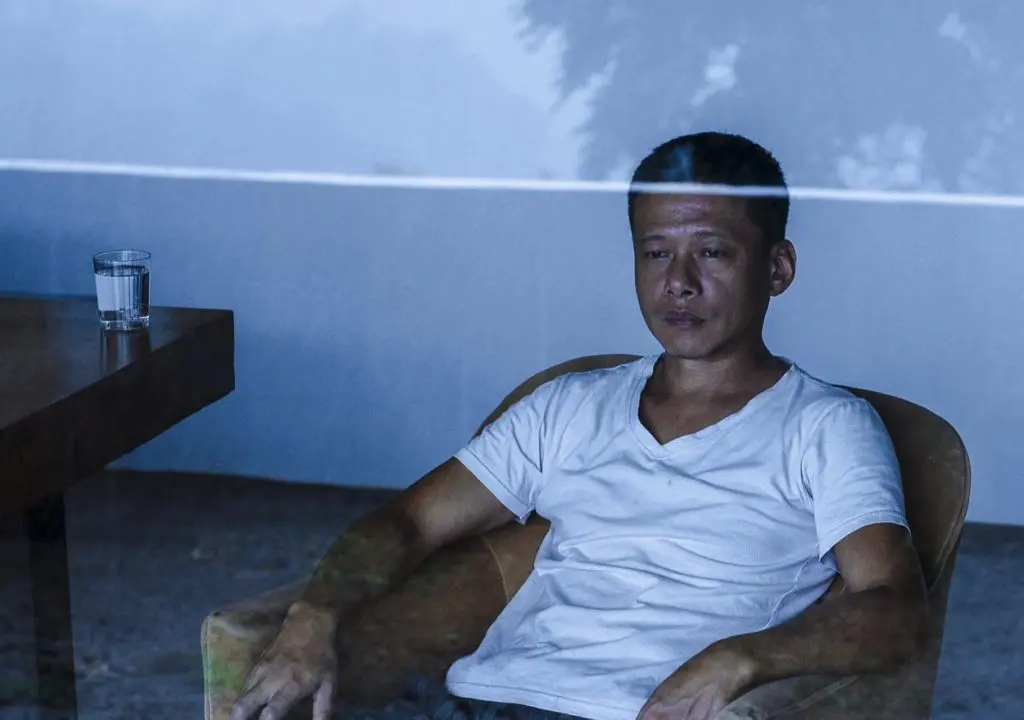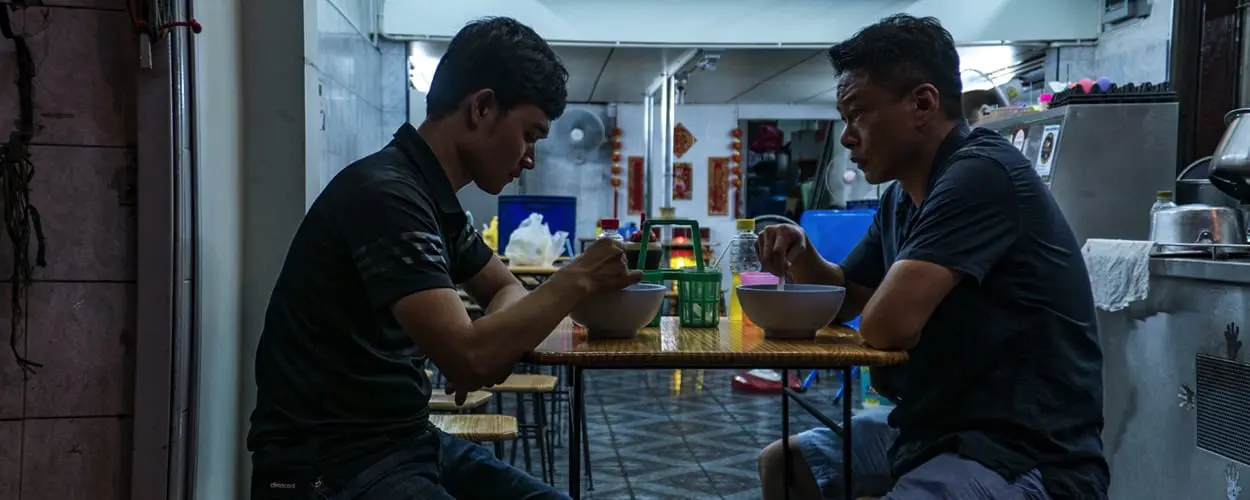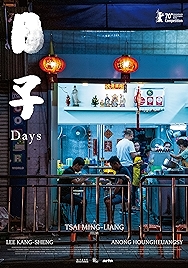“This film is intentionally unsubtitled”, it says at the beginning of Days (aka Rizi), the latest feature from the amazingly productive Taiwanese director Tsai Ming-liang – 19 films of various lengths in the last decade.
Fans will be delighted to hear it’s more of the same – a virtually wordless film composed of not much more than a double handful of static shots, with only two actors in it, one of them the Tsai regular Lee Kang-sheng, the other a newcomer, Anong Houngheuangsy.
True to form Tsai hits us with a very long opening shot, of a man (Lee) sitting and watching a storm raging, before cutting, eventually to the same man lying in a bath. He has a third nipple, it seems. Is this relevant? We don’t know, and in any case Tsai is much more interested in the man’s face and the emotions playing across it, or not.
The (in)action moves to Anong in his city apartment, a basic sort of place, and we watch, again via a static camera, as this man prepares some food, washing vegetables while squatting on the floor and filling a brightly coloured plastic bowl with water, washing, discarding the water, refilling, doing the same with some fish. Later we’ll watch the same man preparing this food, cooking it from scratch on a charcoal fire, hacking papaya or something similiar into matchsticks, adding fish sauce or soy, steaming rice. He’s preparing the sort of food they eat back in his village. I “know” this because the imdb tells me so, though there’s nothing in the film to indicate the village/food connection. The imdb also says this guy is called Non, and the other guy Kang, but there’s no way of knowing this either.

These people are leading atomised, lonely lives, this much seems obvious. There are a scant few sentences spoken throughout but Tsai fills in a lot of the blanks through his control of the soundscape. Around Kang and Non life bustles with purpose and energy and enjoyment. On the street traffic buzzes, at the market the sound of people’s voices forms a background burble. By contrast, in their separate home environments the soundscape is different, starker, more isolated. At one point Kang is pictured asleep on his bed. There is no sound at all.
The compositions are simple and mournful. Occasionally Tsai reaches for visual reinforcement, just in case we haven’t worked it out for ourselves yet, with a shot of, say, a single streetlight at night, above the telephone wires, in front of a disused building. It’s an aesthetic of absence.
And then something happens. In a hotel, where Kang and Non meet up. Kang is a man, Non is by comparison a boy and suddenly Tsai throws them together. It seems these two loners do have a relationship after all, albeit one that’s at least partly (possibly mostly) transactional.
Something in the way the two men behave towards each other suggests this isn’t the first time they have met either. They talk (!) to each other, though Tsai has them do it at the far end of the room, and really they’re just exchanging pleasantries.
This meditation on solitude is delivered almost as a series of beautifully composed, delicately hued photographs. The sonic atmospherics fill in the gaps where dialogue might have been. Static images, static lives.
Having spent most of 2020 in various stages of lockdown I have to admit I had no interest in watching what amounted to more of the same, and yet Days does undeniably have power and is eloquent in its simplicity. It’s the 180-degree opposite of an action movie, its stars the antithesis of the action movie hero.
A hit on the festival circuit, as an exercise in form it is commedable. As an exercise in atmospherics it is laudable. As an exercise in drama… hmm. I wouldn’t want to watch it again.
Days – Watch it/buy it at Amazon
I am an Amazon affiliate
© Steve Morrissey 2021

